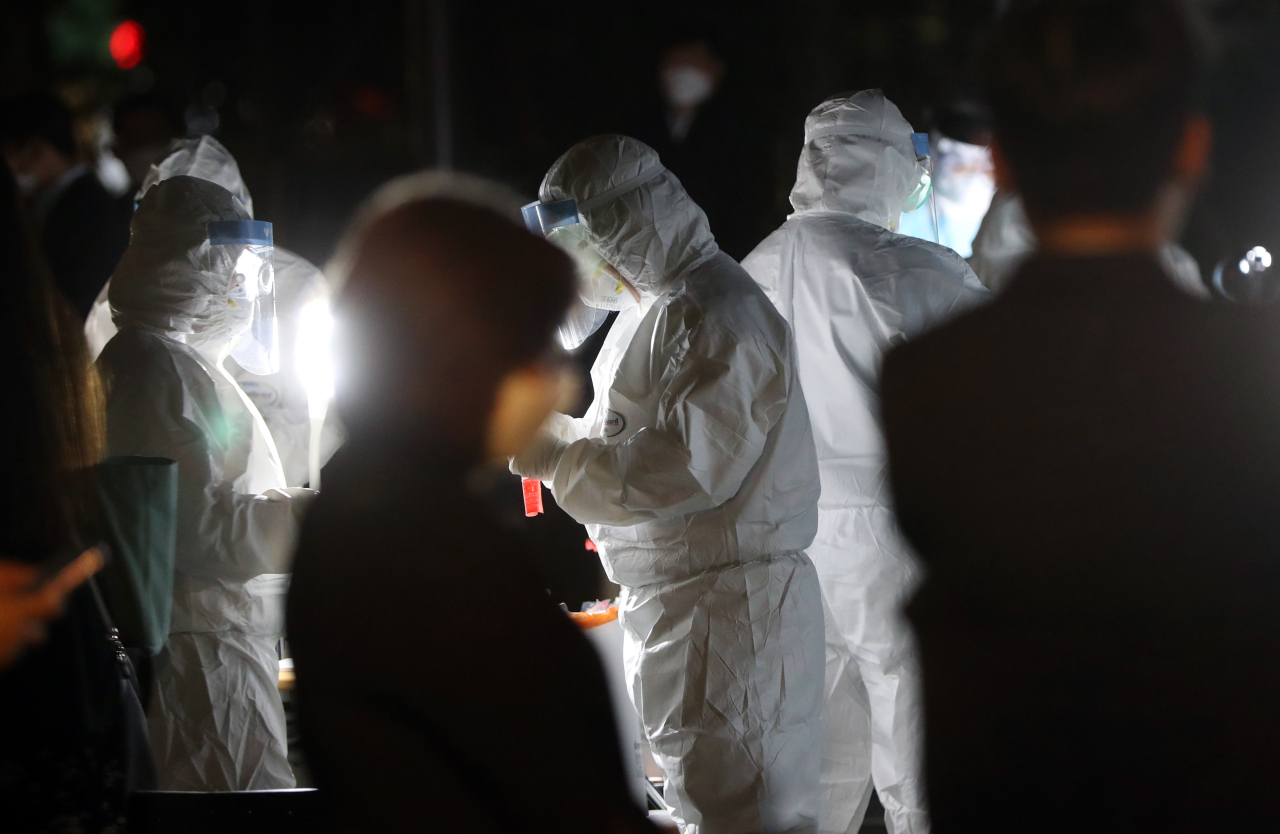S. Korea struggling to contain cluster-traced virus spread in greater Seoul area

South Korea reported more than 50 new virus cases for the second consecutive day Friday, all in the Seoul metropolitan area due to logistics center-tied cluster infections, putting renewed strain on health authorities to contain further spread in the densely populated region.
South Korea reported 58 more additional COVID-19 cases, raising the total caseload to 11,402, according to the Korea Centers for Disease Control and Prevention (KCDC). Of them, 55 were local infections.
Friday's tally marks a drop from the nearly two-month high of 79 the previous day.
All new infections were reported in Seoul and the surrounding area, home to half of the country's population of more than 50 million, putting health authorities on edge.
A distribution facility run by e-commerce leader Coupang in Bucheon, just west of Seoul, has emerged as a new cluster infection here as health authorities have been grappling with mass infections tied to nightclubs and bars in Seoul's nightlife neighborhood this month.
As of noon, 102 cases have been traced to the distribution center since the first patient was confirmed last week, according to the KCDC.
The logistics center cluster has brought to the fore the vulnerability of workplaces where many people work in a close environment without strictly complying with quarantine measures.
Coupang and Market Kurly, an online grocery delivery platform, also reported virus infections at their logistics centers in Goyang, north of Seoul and in eastern Seoul, respectively.
The KCDC said if the logistics facility-linked outbreaks are not contained at an early stage, it could lead to mass infections in Seoul and its adjacent areas.
According to health authorities, virus cases in the greater Seoul area accounted for 88.4 percent of the 181 local infections reported over the past seven days.
"The next two weeks will be a critical juncture in gauging whether the virus outbreak will spread through the metropolitan area," Vice Health Minister Kim Ganglip said in a briefing.
Health authorities are conducting virus tests on 4,351 people, including some 3,600 workers, in connection with the facility in Bucheon.
The government plans to conduct emergency inspections of 32 logistics centers run by three major online commerce operators until Monday. It checked the three facilities the previous day where the virus outbreak occurred.
A series of mass infections have jeopardized health authorities' drive over the past few weeks to bring the virus outbreak under control, with another cluster tied to nightclubs and bars in the capital city's Itaewon district.
The total caseload linked to Itaewon clubs and bars had reached 266 as of noon, according to the KCDC.
The resurgence in new virus cases also put South Korea's "everyday life quarantine" in peril, as the outbreak of more than 50 new daily cases poses a threat to health authorities' plan to stick to the scheme.
After 45 days of stricter social distancing, the country switched to the scheme on May 6 to enable citizens to carry out social and economic activities under quarantine rules amid a slowdown in virus infections.
But the country opted to impose a tighter social distancing campaign in the capital and densely populated metropolitan area over the next two weeks through June 14, instead of going back to strict social distancing.
Health authorities called on citizens to comply with strict hygiene measures and refrain from having mass gatherings, including religious events, this weekend.
Despite concerns over further community spread, the education ministry also said it will proceed with the phased school reopening as planned.
South Korea has reopened schools, starting with classes for high school seniors on May 20 after months-long closures due to the virus.
The country, meanwhile, added three imported cases and reported no additional deaths, with the total death toll staying at 269. The fatality rate was 2.36 percent.
The total number of people released from quarantine after full recoveries stood at 10,363, up 23 from the previous day.
The country has carried out 885,120 tests since Jan. 3. (Yonhap)